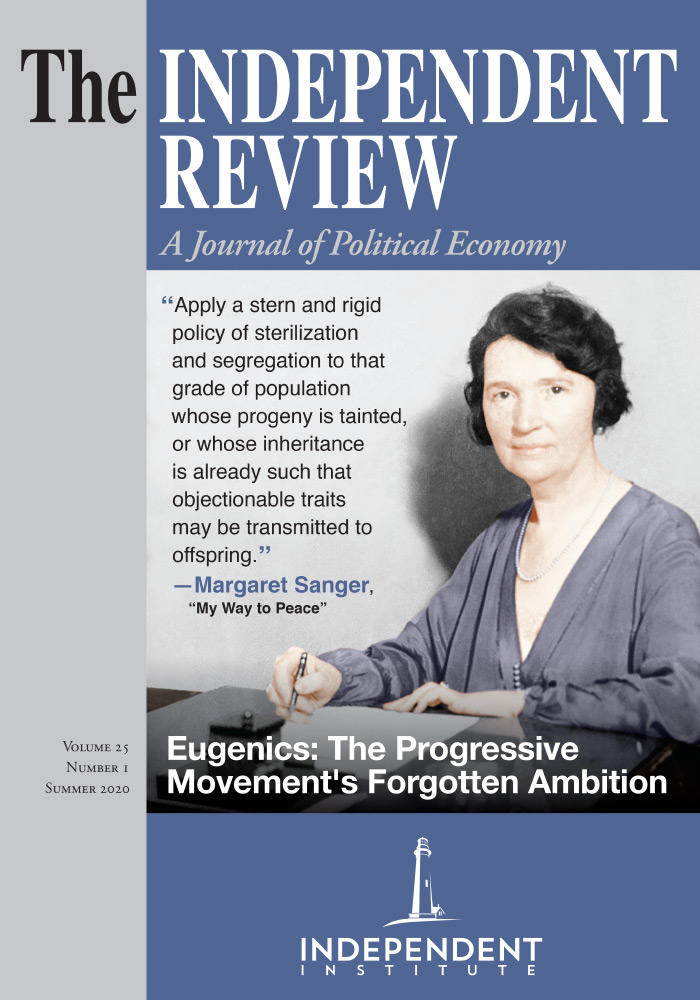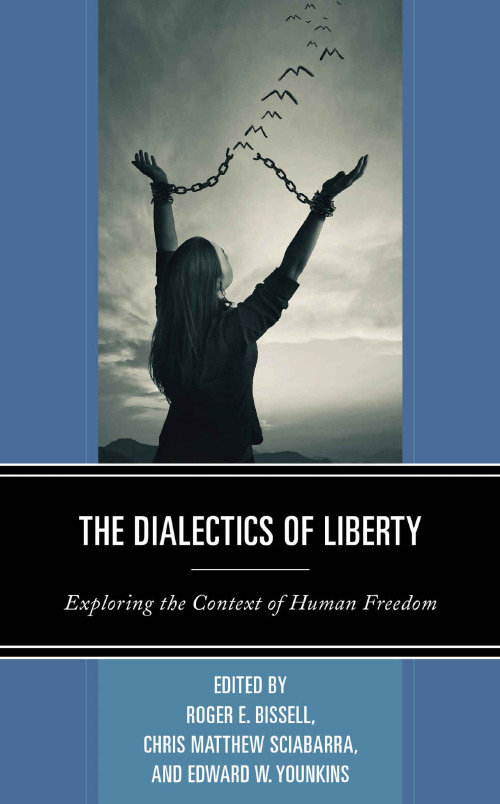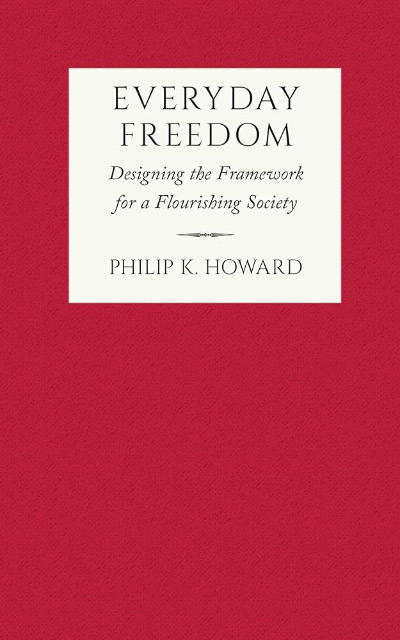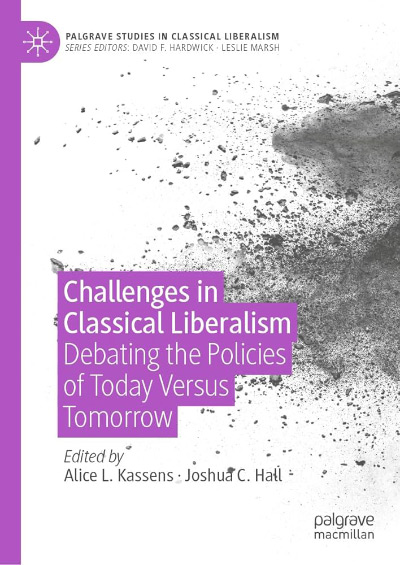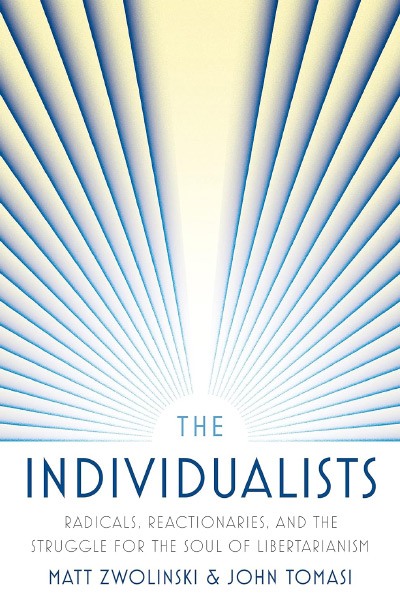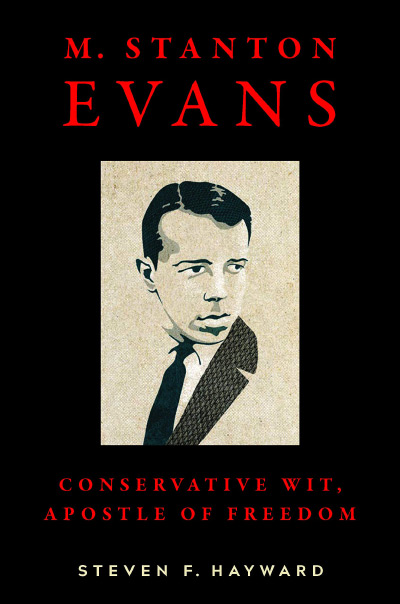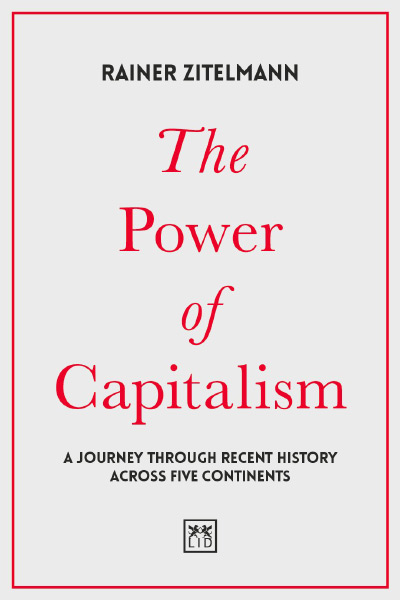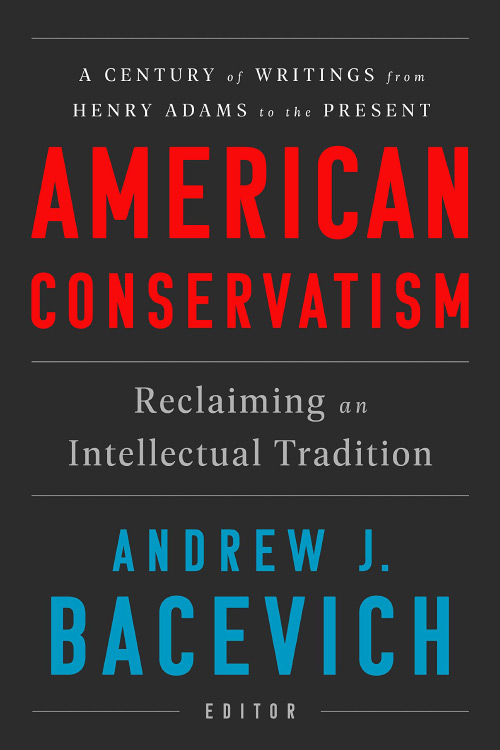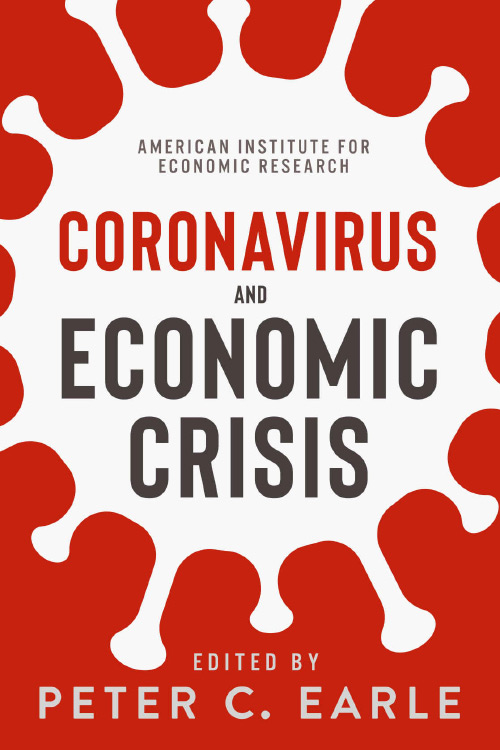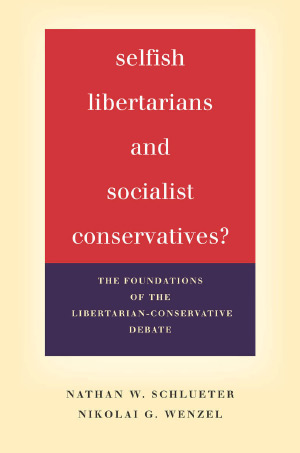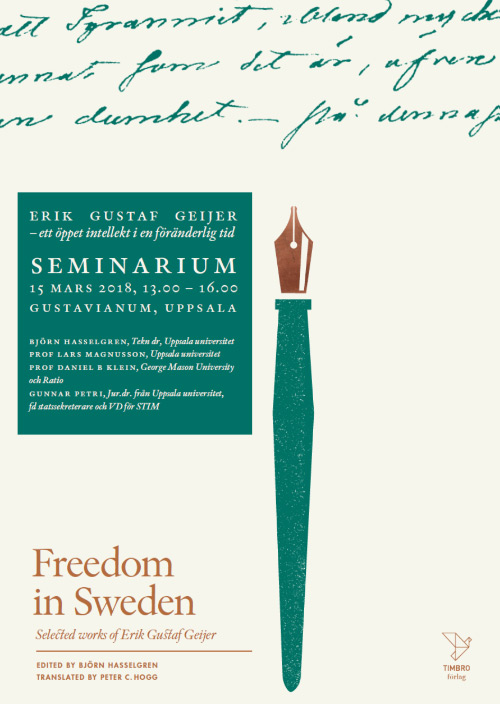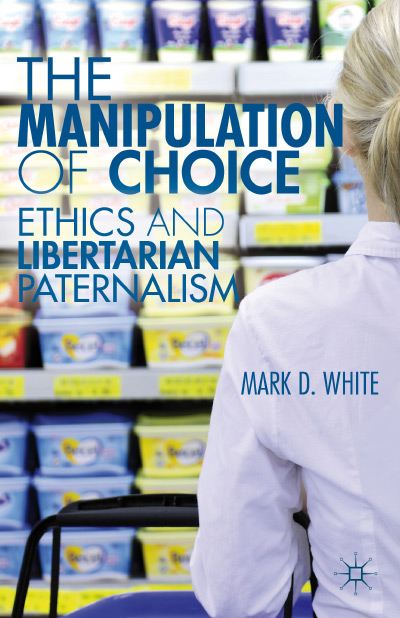The Dialectics of Liberty: Exploring the Context of Human Freedom edited by Roger Bissell, Chris Matthew Sciabarra, and Edward Younkins includes eighteen essays written by nineteen authors. The essays draw from a variety of disciplines which include aesthetics, economics, psychology, history, and philosophy. It is the first collection of works on this subject by scholars with this range of disciplinary diversity. Dialectics of Liberty represents an important contribution in advancing dialectical libertarianism.
The first essay is “Toward a Dialectical Libertarianism” by Sciabarra. In work spanning nearly three decades, Sciabarra has established the foundation for what he calls “dialectical libertarianism,” which refers to the merger of dialectics with liberty. In his “Dialectics and Liberty Trilogy” (Marx, Hayek, and Utopia; Ayn Rand: The Russian Radical; and Total Freedom: Toward a Dialectical Libertarianism), Sciabarra salvaged dialectics from its monopoly by the left. Dialectics is an analytical approach that can be used to understand liberty, the threats to subvert it, and the safeguards that protect it. Dialectics takes the world as it is and examines concepts and issues from various perspectives within the context of the forces on the ground.
In “Freedom and Flourishing: Toward a Synthesis of Traditions and Disciplines,” Younkins draws on the philosophies of Aristotle, Ayn Rand, and the Austrian economists to lay out a systematic framework for freedom and flourishing. It is an ambitious essay, which condenses a vast amount of information in relatively few pages. According to Younkins, natural law provides the basis for the principles on which the political system is founded. Natural law presumes that there is something unique about human nature as it relates to human survival (flourishing). Humans have the capacity to reason and they have free will. Their survival is dependent upon their rational faculty. The exercise of free will requires freedom to act on one’s decisions. The non-interference principle is required so that the exercise of free will by one person does not interfere with that of another. That is, natural rights are negative. In addition, Younkins provides an explanation for the distinction between Austrian value-subjectivity and Objectivism’s view of objective values, and he shows that these two perspectives on value are not (necessarily) incompatible. He also offers suggestions on how the ideas that he specifies may be promoted and embraced by a culture.
In “The Unchained Dialectic and the Renewal of Libertarian Inquiry,” John F. Welsh envisions the goal of dialectical libertarianism to be an analysis of the impediments to personal freedom as well as the advancement of actions to remove those impediments. According to Welsh (p. 76): “Dialectical libertarianism interprets culture, polity, and economy through the lens of the self-conscious, self-determining human being.” Welsh points out that in free-market countries, the prevailing thought is originated and promoted by establishment elites with the objective of imposing conformity on others. Individual freedom can be advanced through a comparison of prevailing thought with facts on the ground. When prevailing thought is found to clash with reality, this can aid in identifying and assessing the extent of asymmetrical practices within social formations that favor cultural elites at the expense of those who are exploited.
“Whence Natural Rights?” is by Douglas J. Den Uyl and Douglas B. Rasmussen. The authors, who have spent over thirty years building an argument that establishes a natural rights foundation for individual liberty, question why the focus of other philosophers has shifted to other bases for rights (for instance, Robert Nozick. 1974. Anarchy, State and Utopia. New York: Basic Books). One key factor they give for the shift away from natural rights is the repudiation of cognitive realism in favor of constructivism. In their view, classical realism provides the philosophical vehicle to arrive at a concept of nature that supports natural rights.
In “Dialogical Arguments for Libertarian Rights,” Stephan Kinsella offers several cases for rights, all of which require the parties involved in (potential or actual) conflict to engage in discourse—which by its nature is “conflict-free.” His preferred case is an estoppel argument (discussed below).
In “Dialectical Psychology: The Road to Dépassement,” Robert L. Campbell presents an argument for dialectics in developmental psychology using Jean Piaget’s genetic epistemology as a case study. Piaget’s saw dépassement as “what happens when an emergent structure or system integrates and incorporates the structure from which it arose and also does something significantly new, going beyond them in an important respect” (p. 117). Ultimately Piaget’s position was that when there is dépassement, the process is dialectical.
“Don Lavoie's Dialectical Liberalism” is by Nathan Goodman. Goodman’s objective is to demonstrate that the writings of Don Lavoie, an Austrian economist, were dialectical throughout. Lavoie claimed that the inception of militarization of the economy was World War I; at which time, planning for war fell primarily to business owners and managers, who seized the opportunity to consolidate their power in order to pressure the government into putting the economy on a perpetual wartime footing. Lavoie encouraged an understanding of the cultural influences on the economy. In addition, Lavoie recognized that advancing radical libertarianism requires understanding the social context of the individuals involved.
“Free Speech, Rhetoric, and a Free Economy” is by Deirdre Nansen McCloskey. Any argument in favor of liberty must use rhetoric, which McCloskey (p. 149) regards as “speaking with persuasive intent.” McCloskey (p. 153) sees liberty as “a condition of uncoerced persuasion.” Of course, any speech short of fraud is permissible in a free society. However, where persuasion is lacking, as was ultimately the case in ancient Athens, it may portend freedom’s decline.
“Exploring the Interconnections of Politics, Economics, and Culture,” by Robert Higgs, begins with a discussion of how government involvement in the economy has a corrupting influence on the moral character of its citizenry. Dependency on the government has swollen to approximately one-third of the population. Dependency tends to reward non-productive activity and crowd out private productivity, creativity, and initiative, resulting in a squandering of the realization of potential and the diminution of wealth creation. He gives an account of the social, economic, and ideological forces at play between the government and the private sector.
In “Context Matters: Finding a Home for Labor-Managed Enterprise,” David L. Prychitko gives a brief historical account of labor-managed enterprises focusing on Yugoslavia. Prychitko delineates the differences in workers’ rights in labor-managed enterprise operating in a free economy as he envisions them relative to those in Yugoslavia’s planned economy. He proposes this enterprise because of the prevailing asymmetrical power relationships that are currently prevalent in U.S. companies. According to Prychitko (p. 181): “the notion of one-worker, one-vote is, in my view, a truly liberal idea, and a radical one at that.”
In “The Dialectic of Culture and Markets in Expanding Family Freedom,” Steven Horwitz examines the dialectical inter-relationships between changes in the economy and changes in the family from prior to the Industrial Revolution to the present. Horwitz traces the effects of technological, legislative, institutional, and cultural changes on family size, structure, and composition as well as on work inside and outside the home. Some of the most significant changes are reflected in the roles for women. He speculates on the possibility of marriage becoming a “serial” institution in the future; that is, people may have multiple, sequential marriages over their lives because of the different demands that come with age.
Regarding the structure of the family, Horwitz suggests an evolutionary process may take place whereby more successful structures are emulated. He also mentions that he eliminated some issues because of space limitations. One not mentioned was the effects that government policy has had on families. From 1938 to 2017, the percentage of African-American children born to single mothers rose from 11 to 75 percent, partly in response to governmental policies. Recently, Pew Research reported that approximately one-fourth of children in the U.S. live in households with only one adult—three times the world average. Children in single-parent households are at greater risk of poverty, incarceration, and less education.
“Up from Oppression: Triumph and Tragedy in the Great American Songbook” by Bissell, examines two ethnic groups, African-Americans and Jewish-Americans, who from World War I until the middle of the twentieth century are credited with producing much of the popular music in the U.S. Bissell recounts that the locus of this creative and commercial activity was New York City. He discusses the influences of the 25-year monopoly of the American Society of Composers, Authors and Publishers (ASCAP), which began in 1914 when it was awarded a Supreme Court ruling allowing it to collect royalties and distribute them to its members. He traces the ASCAP’s fee increases during the 1940’s, the radio boycott of ASCAP members, the rise of BMI, and the American Federation of Musicians strikes. Bissell highlights the influence of technology over this period. He also details the decline of dance bands, which were hurt in the 1940’s by ASCAP’s actions, wartime rationing of gasoline and rubber, and a “cabaret tax.” The historical changes pertaining to song-writing during this period were not (solely) the result of a free play of market forces. Also at play were actions of the government—whether a Supreme Court ruling, the repeal of Prohibition, or the regulations, laws, and other dislocations brought about by World War II.
“Why Libertarians Should Be Social Justice Warriors” is by Roderick T. Long. Long states that social justice has to do with a society’s obligation to the least advantaged and is associated with the Left. Some libertarians have been critical of social justice because of its focus on society, rather than the individual. Others object that its imposition would interfere with spontaneous order. Long points out that existing rules/laws may not be the outcome of spontaneous order and may be inconsistent with liberty—in which case it would be an act of social justice to advocate for their change.
According to Gary Chartier, who authored “Radical Liberalism and Social Liberation,” liberalism endorses freedom, individualism, and heterogeneity. Radical liberalism is an appeal to return to the roots of liberalism, to commit to anarchism, and to be comprehensive in scope; that is, encompass all aspects of life—political, moral, legal, and cultural. Although radical liberalism advocates heterogeneity, Chartier (p. 270) states that: “If liberals attack voluntarily illiberal communities, they seem to undermine their own commitment to diversity.”
“Social Equality and Liberty” is by Billy Christmas. Social egalitarianism (SE), the subject of Christmas’s essay, stresses not distributional equality, but rather a commitment to libertarianism. SE advocates for equality of treatment, which rejects hierarchy and the domination it entails. Christmas sees SE as political, which is not confined to the state or law; it is also personal. It extends to the private spheres of workplace and family, and is achieved as a result of efforts of individuals.
In “Formal vs. Substantive Statism: A Matter of Context,” Kevin A. Carson compares atomistic libertarianism, which emphasizes fundamental principles devoid of context, with dialectical libertarianism, which views a particular situation within the overall system of which it is a part. One objective of libertarians is to rid society of government intervention. Carson recommends gradual removal of governmental barriers to freedom with the initial focus being on primary roadblocks (mentioned below). Like the Industrial Workers of the World, he advocates constructing a “new society within the shell of the old” (p. 297).
In “The Political Is Interpersonal: An Interpretation and Defense of Libertarian Immediatism,” Jason Lee Byas, like Carson, examines the idea of whether the transition from state aggression to libertarianism should be immediate or gradual. He advocates for immediatism. Byas states that aggressive acts are undertaken by individuals. Enforcement of unjust laws are acts of aggression and should not be undertaken—which in effect abolishes them.
In “Aesthetics, Ritual, Property, and Fish: A Dialectical Approach to the Evolutionary Foundations of Property,” Troy Camplin points out parallels between “uniformity in variety” in nature and art. Humans find rhythmic patterns aesthetically pleasing. Rituals are repetitive patterns of behavior that are rooted in mating activities of fish and other animals. According to Camplin, humans need a better understanding of their biological selves in order to better comprehend the rules that underlie their behavior. He discusses territorial fish (gobies) to provide an evolutionary foundation for property rights. If attacked by another (typically male) fish, a male gobie will defend his territory and only cede it if the opponent is stronger. The males engage in a dance ritual to attract females (and to ward off male challengers). Birds and mammals tend to live in groups and form hierarchies, typically led by a dominant male who establishes a territory and defends it. Rights to property spring from our evolutionary ancestry. To rid the world of property rights would rid it of “what it means to be human.”
Discussion
This section considers some of the issues covered in the essays, including points of agreement and disagreement. The authors deal with how dialectics fits in with logic and theory, the open-endedness of knowledge, and how new knowledge is handled. In the “Introduction,” the editors point out that logic involves identifying and avoiding contradictions in our thinking; dialectics involves resolving contradictions when they are present. Logic abstracts from reality. Dialectics reminds us that reality is the ultimate arbiter of truth. Although dialectics may not be theoretical per se, its utilization can lead to theoretical development. As an example, Goodman discusses a debate in the history of economic thought. He presents an instance in which neoclassical economists failed to consider theory (related to prices) within a wider context; that context being the institutional setting in which it was embedded. In an essay published in 1920, Ludwig von Mises addressed what is referred to as the “economic calculation problem.” His discussion stimulated further debate. In response, neoclassical economists Abba Lerner (my former professor) and Oscar Lange claimed that economic calculation was achievable by socialist planners. Lavoie subsequently argued that private property was necessary for prices to emerge. Those prices are not, nor can they be, calculated based on the solution of a set of simultaneous equations with given data, as neoclassical theory claimed; they must be determined by the rivalrous interplay of market forces founded on the institution of private ownership of resources. Welsh points out that knowledge is open-ended and Campbell discusses how new knowledge is incorporated into existing knowledge. Campbell discusses dépassement, a process by which new knowledge is handled within an existing theory. The acquisition of new knowledge is not an additive process nor does it simply replace existing knowledge; it “goes beyond it” (p. 109). Dépassement is dialectical. It extends an existing system of knowledge by pushing boundaries, while remaining within them.
There are points of agreement and of disagreement among the authors. For one, they agree that humans have rights; however, they disagree on the basis for rights. Den Uyl and Rasmussen have put forth a defense of natural rights based on human flourishing which is Aristotelian-based. Kinsella’s argument for rights is based on the estoppels principle, which is said to demonstrate that an aggressor (B) contradicts himself if he objects to the victim’s (A’s) rights enforcement. If the aggressor (B) objects to punishment, he must maintain that force is wrong; however, because he has initiated force, he has demonstrated by his actions that force is justifiable. To claim otherwise would be a contradiction. Of course, it is possible that B believes in “rights,” however, instead of the non-interference principle, B believes “might makes right.” Essentially, this reflects the actions regarding territoriality among gobies described by Camplin. Of course, fish do not think in terms of “rights.” If a male gobie does not enter the territory of another, it is not because he thinks the latter has a right to that territory. It is because he perceives the territoried fish as stronger than he. If a male gobie challenges a territoried male, the challenger expects to win. That is, a human aggressor who thinks that “might makes right” believes he has a “right” to challenge a person that he perceives is weaker. He may also expect the victim might fight back; that is, the victim has a “right” to fight back in the sense that it is a risk the aggressor assumes. However, the aggressor also thinks he has the right to continue fighting until he wins or is defeated. Camplin (p. 333) states: “The origin of property is deeply a-rational and non-ideological.” That may be true, but the origin of property rights is not a-rational. This is clear in Kinsella’s statement:
“To object to his punishment, B must engage in discourse with A; he must at least temporarily adopt the stance of a peaceful, civilized person trying to persuade A, through the use of reason and consistent, universalizable principles, to provide reasons as to why A should not punish him. (p. 95)”
According to Kinsella, Hans-Hermann Hoppe’s view is essentially that human nature is too diverse to form a foundation for natural law. Human nature is varied, but humans have characteristics that are essentially different from gobies, even though both are territorial. Humans are capable of rationally communicating with each other. Insofar as rights are concerned, the objective is to isolate aspects of human nature that contribute to human survival. Identified in Kinsella’s quote is one distinguishing characteristic—“the use of reason.”
Property rights encompass more than territory. For instance, there are liberty proponents who advocate intellectual property rights (S.K. Touchstone. 2006. Then Athena Said: Unilateral Transfers and the Transformation of Objectivist Ethics. Lanham, Md.: University Press of America, 166-71). However, those authors who addressed intellectual property either expressed negative comments or explicitly opposed them (see Carson, pp. 296, 300; Chartier, p. 265; Bissell, p. 203; and Byas, p. 320). Similarly, those authors who expressed an opinion on open borders supported that position (see Long, p. 241; Chartier, p. 266; and Byas, p. 310). Byas regards enforcement of immigration laws to be acts of aggression that should not be enforced. According to Byas (p. 311), “[T]he libertarian who affirms non-aggression has already affirmed immediatism. To say otherwise treats the state as a floating abstraction, acting independent of persons.” Long states that national anarchists, “have made common cause with the Alt-Right—as instanced by the tribalist, anti-cosmopolitan, anti-immigrant version of libertarianism defended by Hans-Hermann Hoppe” (p. 241). Of course, to oppose “open borders” is not (necessarily) anti-immigrant. The choice is not binary. One consideration could be how to preserve freedom and/or expand it. If mass immigration from non-free countries into (relatively) free countries has the effect of weakening the freedoms in the freer countries, then freedom is compromised overall. For instance, the U. S. has a First Amendment. The extent to which those who enter the U.S. are not free speech advocates (whether actively working to abolish it or insufficiently understanding it) could have the effect of diluting the overall devotion to free speech. To the extent that the only country that explicitly recognizes free speech in its founding document no longer observes it could result in free speech no longer being observed (as an abiding principle) anywhere. (Communicating values, such as free speech, can be impeded by speech itself. In 2018, Buffalo educators reported 83 different languages spoken by students. A comparable figure in the Bay Area was 112.)
Unsurprisingly, those authors who discuss speech are free speech advocates. McCloskey’s article is devoted entirely to speech. McCloskey and Chartier both regard the practice of persuasion as a hallmark of libertarianism. However, as McCloskey (p. 153) recognizes, “hate speech” must be tolerated in a free society. Differences exist among the authors on views concerning anarchy vs. a minimal state. For instance, Chartier and Byas prefer anarchy; whereas Younkins refers to Den Uyl and Rasmussen’s contention that natural rights provides the basis on which a minimal state may be founded.
In his discussion of radical liberalism, Goodman invokes Lavoie’s position that strategies for societal change must be mindful of the prevailing culture and not simply target existing legal and governmental bodies. Sciabarra states, according to Friedrich Hayek, change at the political level should proceed gradually, emerging in concert with changes in cultural norms and personal values. According to Younkins, political change comes about more easily when there is widespread agreement on political and ethical principles. This can be brought about through discussion, instruction, the arts, and literature as well as “praise and blame.” Younkins suggests that cultural changes should be incremental.
If change is incremental, how are changes prioritized? Both Carson and Long recommend that change should be pursued in accordance with primary and secondary forms of government intervention. Primary interventions are structural forms of exploitation that exist throughout society. Secondary interventions ameliorate the effects of the primary regulations. As examples of ameliorative interventions, Carson and Long mention Keynesian policies and the minimum wage. Carson recognizes that licensing cannot be eliminated immediately, and favors consumer rights over those of the producer because of unequal parity in the power relationship. As an example, Carson (p. 296) claims that pharmacists – because they are “direct beneficiaries of compulsory, occupational licensing” – should be forced to sell morning-after pills. Since virtually no one can enter a business/trade without a license, this implies virtually any customer could dictate what is sold. It could be argued that the licensee is also a victim since he cannot ply his trade without the license. Although I think the producer has “the right to say no” (McCloskey, p. 153), I am in sympathy with Carson’s concern. For instance, I do not think that a doctor should be forced to perform an abortion if it goes against his conscience. However, it is now the policy in the U.K. that patients can be refused treatment for making racist or homophobic remarks. On one hand, this would seem to violate free speech (which is unprotected in the U.K.), particularly since healthcare is state-sponsored there. Yet, as Carson notes, many libertarians would say that (acting individually), a doctor or nurse has the right to deny service to anyone for any reason.
Final Thoughts
The U.K. example reflects the decline in an overall commitment to free speech in the U.K.; which has also been taking place in other Western democracies. The growing suppression of speech was mentioned in (S.K. Touchstone. 2017. When ‘A is not A’: Reflections on a Conversation. Journal of Ayn Rand Studies 17(2), 247-48). When a society is relatively static, analysis is relatively easy. Recently, changes in Western culture, such as those related to speech, appear to be occurring rapidly, and the sources are numerous and not always easily identifiable. Dialectics of Liberty is a timely book because dialectics is the ideal tool to address these changes.
Speech is an encompassing issue in that language affects every aspect of life. According to ethical evolutionists, changes in language tend to occur gradually (F.A. Hayek. 1973. Law, Legislation and Liberty 1. Chicago: University of Chicago Press). Moreover, they maintain that changes in language should develop through the interplay of voluntary association. Yet, many recent changes to language have not been “bottom-up,” but imposed “top-down.” In the U.S., this imposition has been less the outcome of legislative change as the result of the actions of (quasi-) private institutions (for example, APA. 2012. Guidelines for Psychological Practice with Lesbian, Gay, and Bisexual Clients. American Psychologist 67, no. 1: 10-42). Those affected have been from every corner of society. Workers have lost jobs; students have faced retaliation. Changes in language have had far-reaching effects—particularly as related to children. Legal efforts to address rights-related issues have been contradictory. This is largely because there is a lack of agreement on the meaning of the concepts involved. The enforcers of language are not primarily governmental, but corporate nonprofit entities. Many of the enforcers have vast resources that result from their interaction with government.
Hayek (1973, 51) made the point that spontaneous order emerges from a balance of forces adjusting to one another: “a balance which will be destroyed if some of the actions are determined by another agency on the basis of different knowledge in the service of different ends.” The mandated changes in speech have not resulted from balanced forces or a free interchange of ideas, but have been imposed and enforced by agencies that have objectives that are unclear to, or not shared by, those who have been compelled to conform to them (or face the consequences).
What recourse do individuals have to address what they perceive as injustices? Where rights are involved, one avenue is to take action in court. This is not always feasible because of unequal access to resources available to the parties involved. My concern is while adults are trying to arrive at an agreement on concepts that have far-reaching effects, children should be protected legally (and otherwise) from physical and psychological abuse. A possible response to online “censorship” is to create competition. This can be expensive and time-consuming. It doesn’t guarantee that the competitor will avoid censorship. Some have suggested that tech companies’ liability exemption under Section 230 of the Community Decency Act should be rescinded. Prychitko’s suggestion of more egalitarian work environments could be a possible way to resolve issues in the workplace. Long suggested that social justice should not be exclusively a concern of the left. When a freedom is threatened, that qualifies as social injustice. As for enforcement of mandated speech, social justice activism has recently been left-leaning—the tactics often based on Saul Alinsky’s Rules for Radicals (New York: Vintage Books, 1989). From the libertarian perspective, if it is appropriate for an individual to take a given action in order to preserve a right, it would be appropriate for a group who shares the same concern to take action. I think this is particularly true as a defensive measure when attempting to preserve a right that is under wide-scale attack.
These brief comments on speech (which I have addressed in a forthcoming book) have listed some of the issues that would be relevant to a more thorough analysis for a dialectics “practitioner.” Challenges to freedom of speech and other cultural changes are in need of systematic analysis. Dialectics of Liberty offers perspectives from authors spanning a variety of disciplines on how this analysis could proceed for those willing to take up this challenge. I invite those interested to read DOL. The invitation is not limited to practitioners. The book covers a variety of subjects. There is something to interest virtually anyone.

